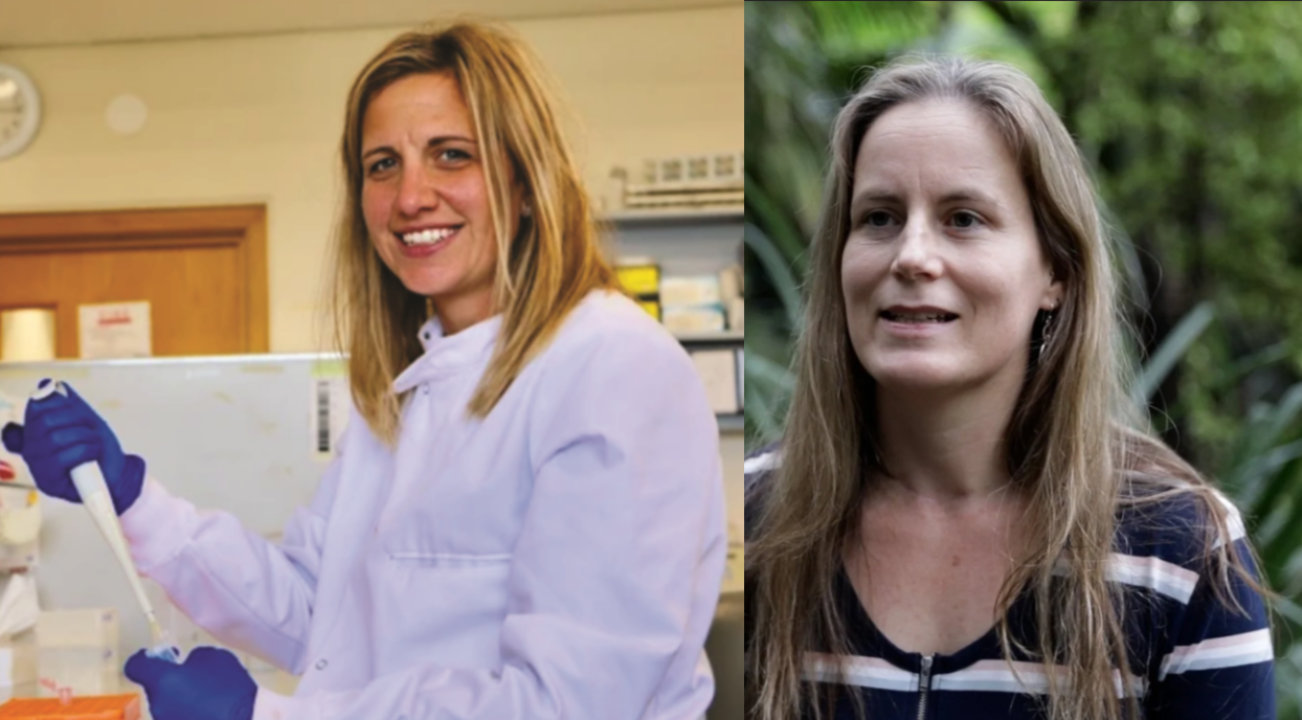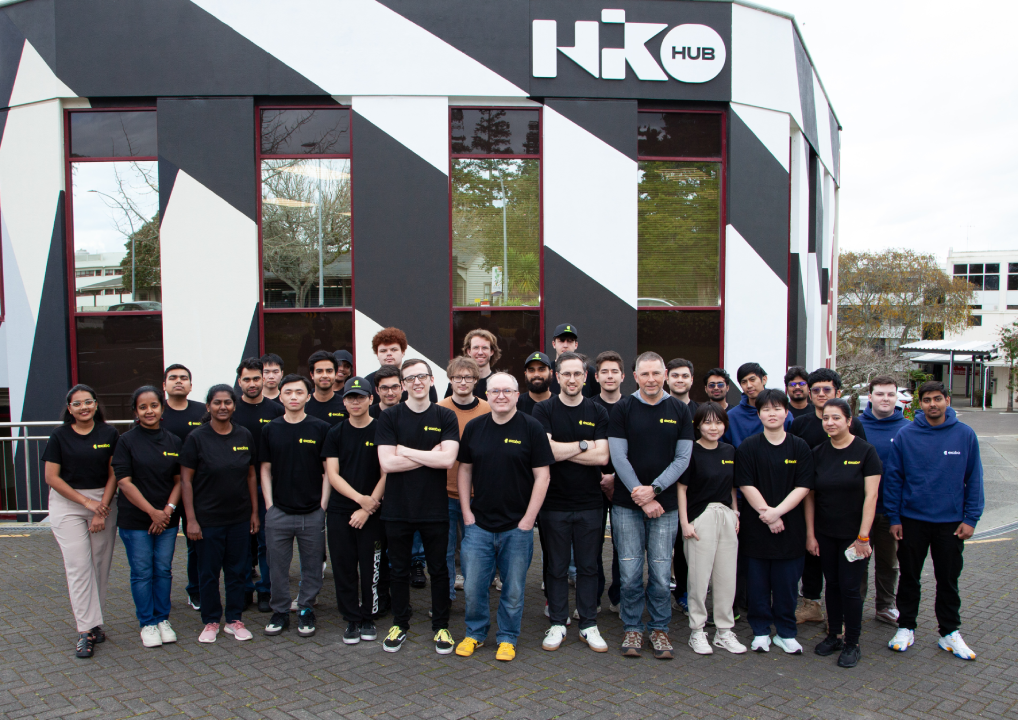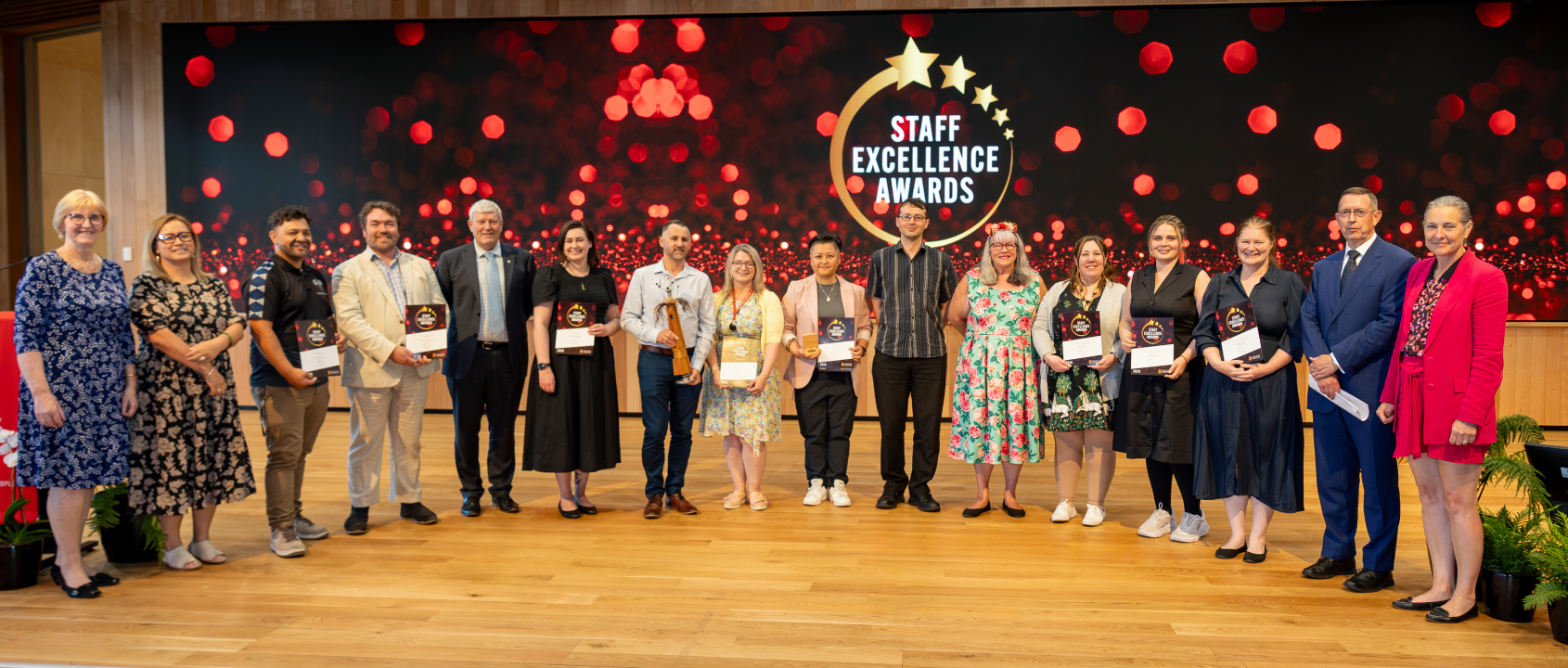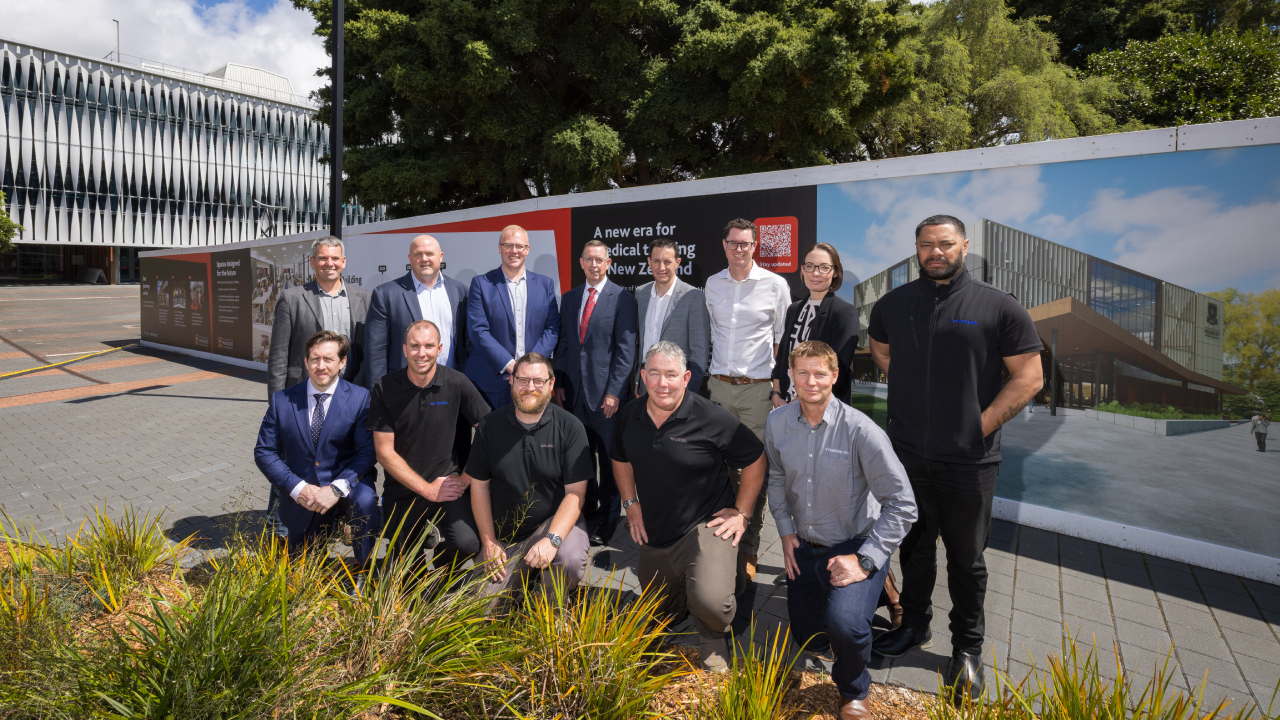The Sparling Travel Award for Environmental Studies is awarded to masters and doctoral students who, as part of their study, present their research at conferences throughout New Zealand. Established in 2019 by research associate Dr Graham Sparling and his wife Ruth, the award acknowledges Dr Sparling’s time at the University of Waikato and his internationally recognised work in soil biology and biochemistry.
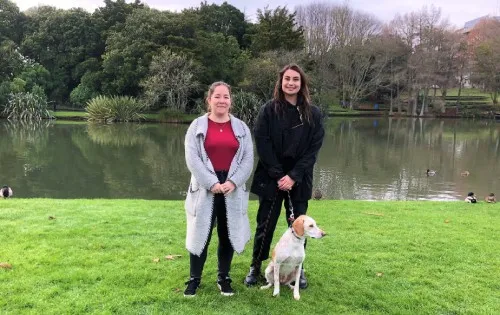
Hannah Robinson and Ashlee Cooper, two of the six Sparling Travel Award recipients.
Environmental studies students Thomas Corbett, Grant Fale, Erin Steed, Melissa Collins, Hannah Robinson and Ashlee Cooper received the award this year.
Thomas, Grant and Erin recently attended conferences where they gained valuable insight to their research, while Hannah, Ashlee and Melissa wait until November to attend the New Zealand Ecological Society Conference in Kerikeri. The three are excited for the opportunity to share their findings with other researchers and uncover future implications of their work.
Melissa will present her findings around teaching scent-detection dogs to detect koi carp in water samples.
“The end game is to support external contractors and the Department of Conservation through the detection of invasive fish in water samples,” she says.
“Knowing that with this support I can generate some interest and gain some insight into my research is awesome.”
Hannah will discuss her research on long-tailed bats and bat boxes in Hamilton at the conference.
“There is a lack of research on long-tailed bats in urban areas. I’m hoping my research can provide some building blocks for the future.”
Ashlee’s research focuses on teaching dogs to detect whitebait eggs for conservation of the culturally significant and endangered species.
“I hope that I can successfully teach dogs to detect nests as it is an easy and affordable way to ensure the species doesn’t become extinct.”
Thomas travelled to the Ministry of Primary Industries to present his research on the development of a chemical sensor to measure nitrate levels in fresh water.
“Given the national policy on fresh water management, we require, as a nation, an affordable and easy tool to use to meet this standard,” he says.
Grant and Erin attended the Apiculture New Zealand Conference and Trade Exhibition and the Honey Bee Research Symposium. Grant’s research identifies a gap in knowledge on the impact of honey bees on native bees and ecosystems. He hopes to discover how many honey beehives are a ‘good fit’ for the New Zealand environment without disturbing the native habitat.
Erin’s research focuses on using varroa infestation rates at drone congregation areas (honey bee mating sites) to predict varroa infestation rates of both feral and managed colonies in the surrounding areas. She aims to develop a method for quantifying varroa infestation at a population level in a simple and efficient way.
The conferences generated hype around Grant and Erin’s research.
“Attending the conference raised a lot of awareness about my research and there’s even potential for it to feed into an app which another researcher is developing,” says Erin.
All six students echoed similar sentiments, that without the award they wouldn’t be able to share their research.
“It’s really exciting that there are people out there who support my research and want me to be able to share it with others,” says Ashlee.
Thomas, who has received support from the Sparlings in the past, is also grateful.
“It’s hard to put into words how grateful I am to receive this award. It’s gratifying to know you’re on the right path.”
